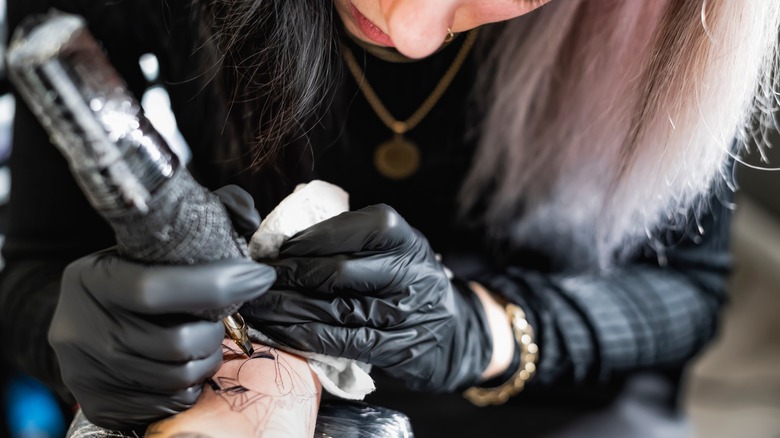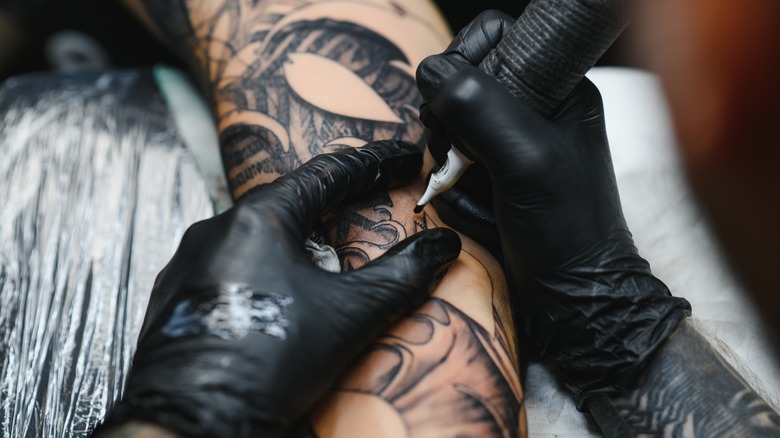Is Tattoo Ink Actually Safe?
Tattoos, which were once largely viewed as an act of rebellion, have gradually become all the rage in American society. As stigmas decrease, tattoos are becoming more widely accepted. According to Harvard Business Publishing, a survey of over 2,000 Americans suggested that having a tattoo had no significant negative impact on their unemployment status or earnings. In addition, Statista reported almost half of American respondents had at least one tattoo in 2018. Interestingly, tattoos found on female mummies indicate that the art of tattooing has been practiced since ancient Egyptian times (per Smithsonian Magazine).
Now, you may wonder — what's the science behind tattooing? If you've ever gotten a tattoo, you know it's a painful process. This is because a tattoo is essentially a wound; to stay permanent, the tattoo ink must reach the dermis layer, which is beneath the visible epidermis layer of the skin. By puncturing the skin almost 3,000 times per minute, a tattoo needle can reach the dermis layer, where it then deposits the ink that creates your tattoo (per ScienceABC). The tattoo is interpreted by your brain as an external threat, which triggers cells in the body called macrophages to try and digest the ink, but they are unable to do so.
Since a tattoo is so permanent, it's important to know whether the ink deposited into the dermis layer is safe. Is it harmless for your health to get a tattoo, or should you skip your next trip to the tattoo parlor?
How safe is tattoo ink?
Tattoos may be attractive, fun to look at, and sometimes very meaningful to the wearer — but there are potential risks that come with tattoos and the ink used to create them. According to the Mayo Clinic, some individuals can experience allergic reactions to tattoo ink, particularly to red, blue, and green dyes. It's possible that an itchy rash or a skin infection can develop from the ink. The U.S. Food & Drug Administration (FDA) reports that ink contaminated with bacteria or mold can lead to infections and that there is no way to tell for sure if the ink used is safe. In the case of a severe infection, one might notice a high fever, shakiness, chills, and sweats.
After getting a tattoo, developing a scar or granuloma is also a possibility. The FDA explains that granulomas can occur when the body detects the tattoo as a foreign object and creates knots or bumps around it.
For these reasons, it may be safer not to get a tattoo. If you are positive that you want one, make sure to choose a reputable tattoo artist. The Mayo Clinic explains that tattoo artists should wear fresh gloves each time they tattoo, wash their hands, use proper equipment, and sterilize any equipment that is not disposed of afterward. In addition, NaturallySavvy suggests being on the lookout for vegan tattoo inks, or inks that include glycerine, ethanol, and purified water rather than those that contain toxic chemicals.


